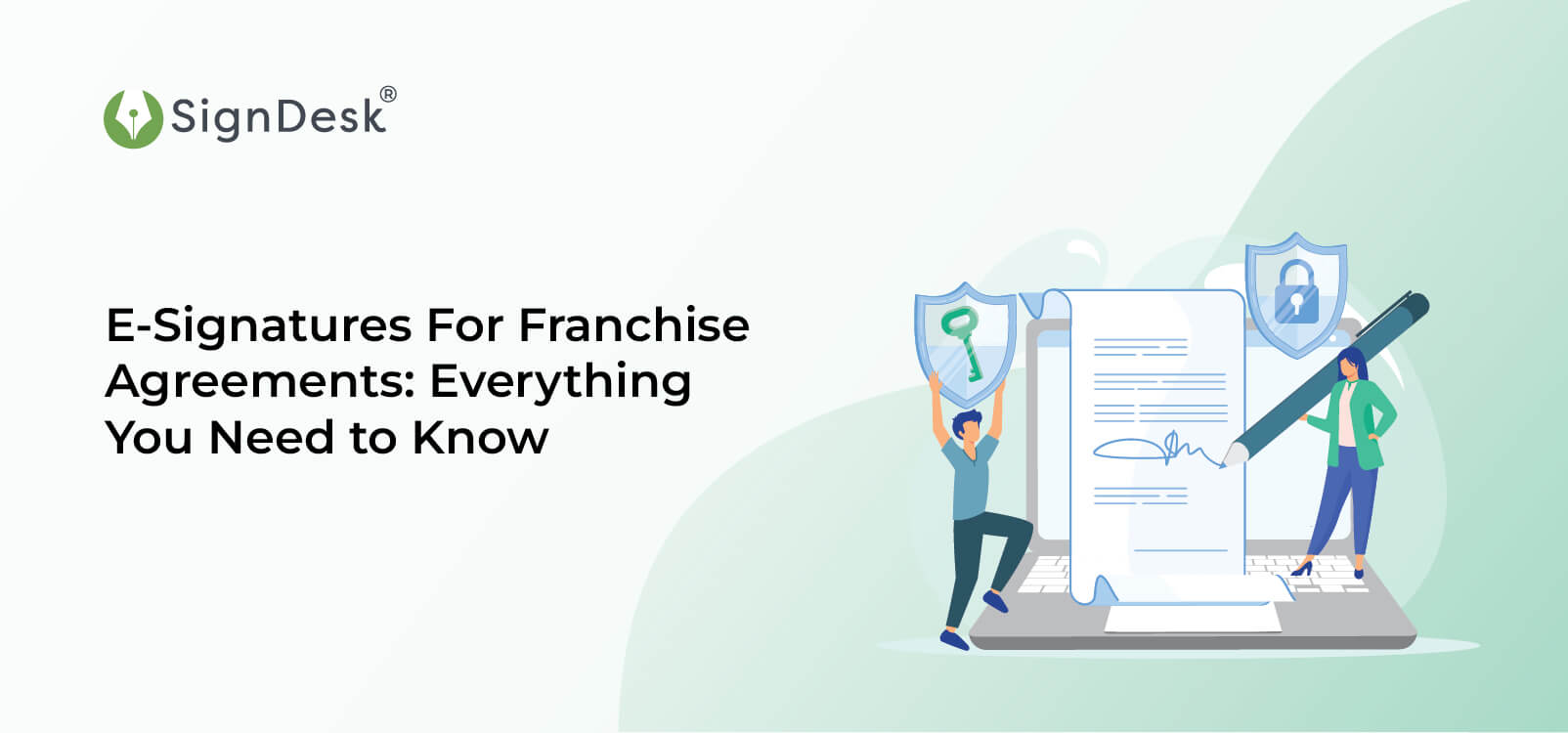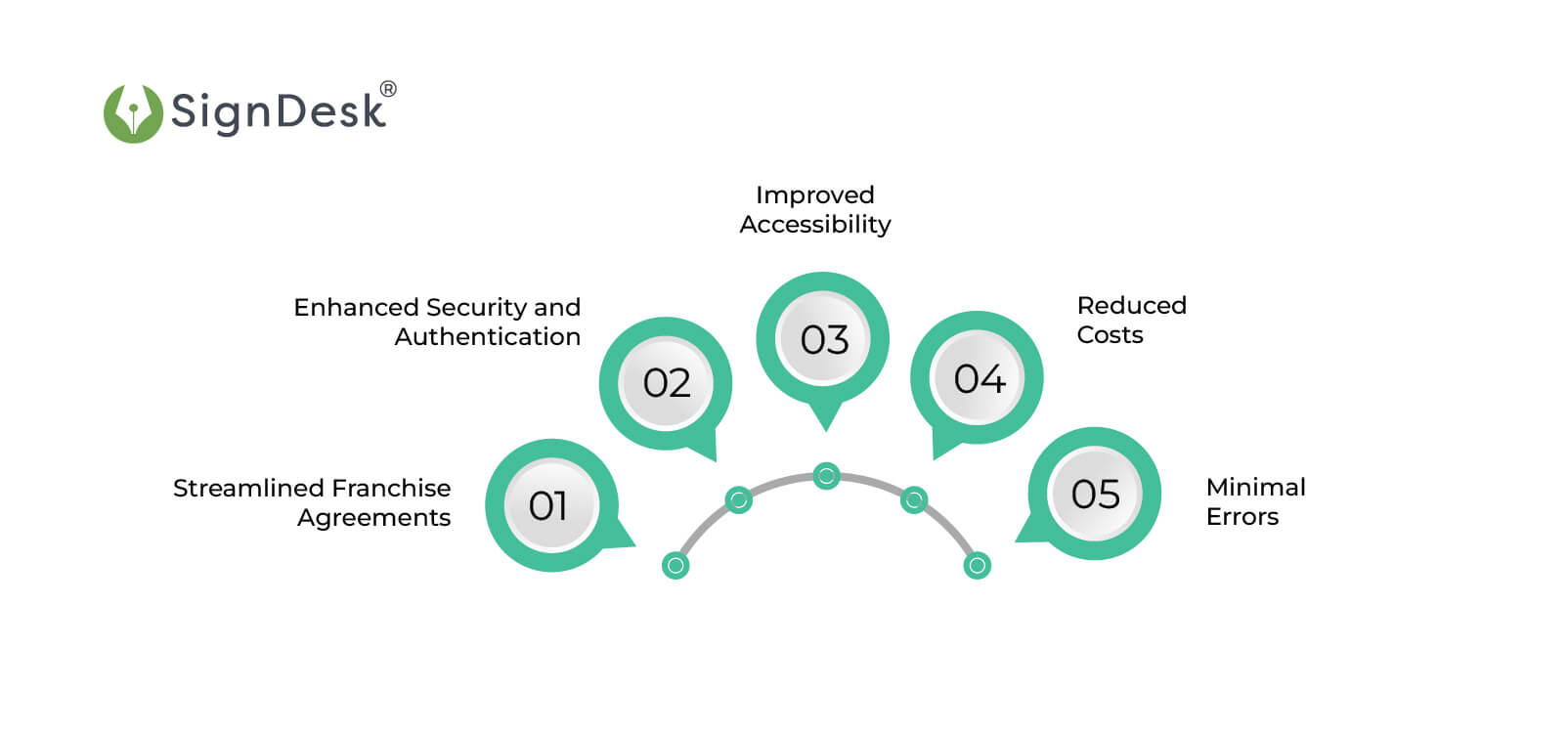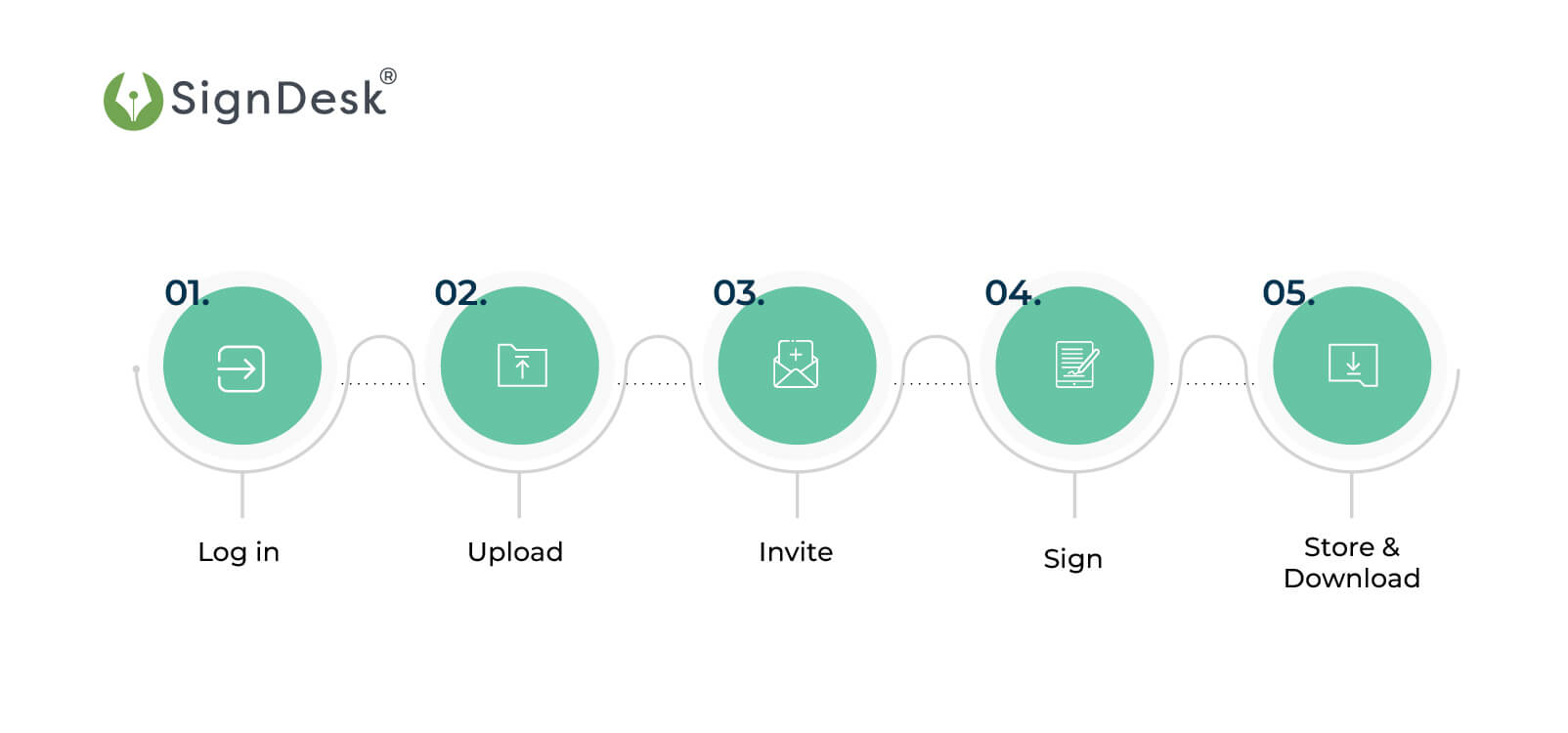What Is Franchise Agreement?
A franchise agreement is a legally binding agreement under which a franchisor grants a franchisee the right to run a business, or sell, offer or distribute goods and services associated with the franchisor’s trademark.
In exchange, the franchisee makes payments to the franchisor as agreed upon in the terms of the franchise agreement.
Franchising is a business model in which one party (the franchisor) transfers the risks and costs of operating new business spaces onto a franchisee. The latter can offer trademarked products or services & make use of the franchisor’s brand as part of the franchise agreement. The terms of the franchise license, the use of trademarks, the territory, the fees and royalties, the training and support, the marketing and advertising, and other operational requirements are all specified in the franchise agreement, along with the rights and obligations of the franchisor and the franchisee.

Despite the fact that there is no explicit legislation in India that regulates franchise agreements, the franchise business is nonetheless subject to several rules and laws. The Indian Contract Act, 1872 lays down the requirements for creating, carrying out, and enforcing contracts in India.
Can Franchise Agreements be eSigned?
Most franchise agreements require a simple signature, hence eSignatures can suffice for executing franchise agreements in most cases.
However, legal experts recommend that any personal or other forms of guarantees provided by a franchisee using a deed. In case of executing a deed, the law in most countries requires that a witness be present during the proceedings. This will help enhance legal protections and safeguards.
To sum up, franchise agreements can be eSigned. However, the agreement should be signed as a deed if the franchisee is desirous of making personal guarantees.
Types of Franchise Agreements
Franchise agreements often come in three different forms:
- Unit Franchise Agreement:
The most typical type of franchising is a unit franchise agreement, under which the franchisee is given the authority to launch and manage a single franchise location. The franchisee spends their own money and employs managerial abilities to expand the company.
- Multi-Unit Franchise Agreement:
This kind of contract enables the franchisee to run and set up several franchise locations. Franchisees with several locations should have solid financial standing so they can be significant assets for expanding their firm.
- Master Franchise Agreement:
The franchisor provides the master franchisee the right to market all of the franchisor’s goods and services in a certain nation, territory, or continent under a master franchise agreement. Other franchisees may be hired by the master franchisee, integrating them into the primary business.
What are the Challenges in Signing Franchise Contracts?
Franchise contract execution can include many difficulties & challenges, including the following:
- Legal Compliance:
Franchise agreements must abide by several laws and rules, which may differ by area, state, or nation. Franchisees and franchisors must ensure that the terms of their franchise agreements comply with all relevant laws and rules.
- Intellectual Property Protection:
A franchise agreement must guarantee the franchisor’s rights to its patents, trade secrets, and trademarks. Make sure the franchisee complies with all laws and guidelines governing intellectual property.
- Financial Management:
The franchisor and the franchisee must know the franchise’s financial commitments and needs. This covers the charges, royalties, and investments both parties must make. Both the franchisor and the franchisee may experience difficulties with financial management.
- Training and Support:
To ensure that the franchisee has a complete grasp of the franchise system, its operations, and its needs, the franchisor must offer sufficient training and assistance to the franchisee. This calls for continual assistance, which the franchisor may find difficult.
- Territory and Competition:
The franchisor is responsible for making sure that the franchisee’s area is clearly defined and that they are not in direct competition with one another or with the franchisor. To avoid territorial conflicts, meticulous planning and oversight are necessary.
- Communication:
For a franchise partnership to be successful, communication is crucial. To make sure the franchise is running successfully and efficiently, the franchisor and franchisee must keep lines of communication open and transparent.
Advantages of eSigning Franchise Contracts
eSignatures offer franchises several advantages in terms of expenses, speed & efficiency. The benefits of eSigning franchise contracts include:

- Streamlined Franchise Agreements:
The signing of franchise contracts frequently involves the participation of several parties, which can cause delays and inefficiencies. The time needed to execute a contract can be decreased by streamlining and improving the efficiency of the contract process with eSignatures.
- Enhanced Security and Authentication:
For franchise agreement eSignatures include sophisticated security and authentication measures to guarantee that the signatures on the contract are real and the contract has not been tampered with. As a result, there is more certainty regarding the legitimacy of the contract and its signatories.
- Improved Accessibility:
As long as there is an internet connection, eSignatures allow franchise contracts to be signed at any time and from any location. This makes contract execution more straightforward and quick because franchisors and franchisees may sign agreements online.
- Reduced Costs:
Franchise agreement eSignatures can aid in lowering the expenses involved with carrying out the whole process. Paper contracts may be expensive and time-consuming to print, deliver, and store. The expenses related to paper contracts can be greatly decreased by utilising eSignatures.
- Minimal Errors:
Executing a franchise agreement eSignatures can assist in reducing mistakes and errors that could happen during the signing procedure. Software for electronic signatures attempts to ensure all necessary fields are filled out, and signatures are positioned correctly.
In a nutshell, eSignatures can speed up the franchise contracting process, minimize mistakes, improve convenience, and guarantee that contracts are enforceable.
eSignatures for Franchises: What are they and How they benefit Businesses
Electronic signature is becoming increasingly popular as a convenient and secure alternative to traditional written signatures. They are user-friendly and offer a faster and more secure way of signing documents.
Online eSignature processing is a quick and effective way to sign any official document. Entering an OTP that was sent to the signer’s email or mobile device serves as the only need for document validation.
When an agreement has been electronically signed, information about the signers, their whereabouts, IP addresses, and comments are all kept to confirm the authenticity of the signed contract.
Businesses may manage their signing procedures digitally by choosing from a variety of eSignature alternatives provided by SignDesk. Businesses have the chance to test out eSignatures on their digital documents thanks to the platform’s free eSignatures for particular alternatives which can be seen below:
-
- OTP-based eSignature: A fast and simple way to sign documents electronically by entering a one-time password (OTP) received via mobile or email.
- Aadhaar eSignature: Authenticated through an OTP received on the signer’s Aadhaar-linked mobile number, and is applicable mainly in the BFSI sector.
- Digital Signature Cerificate or DSC signature: Uses a digital workflow to encrypt documents securely, making it ideal for companies with high-security requirements.
- Video-based eSignature: Creates video-based evidence for consent, providing a convenient, remote authentication method for customers.
eSign Workflow – How To eSign Franchise Agreements & Contracts

By sending an OTP verification to the interested party’s registered email address and cellphone number, one can sign individual documents. Aadhaar and electronic signatures both make use of this OTP-based procedure. The following steps will help you understand what it means:
- Log in: The user must log into the eSign website operated by SignDesk.
- Upload: The user uploads multiple franchise agreements to the eSigning portal. As an alternative, agreements are drafted using templates.
- Invite: The appropriate stakeholders are invited to eSign through email or SMS
- Sign: After accepting the invitation, the parties electronically sign the franchise agreement using either a digital signature or an OTP sent to their Aadhaar-registered cellphone number.
- Store & Download: The electronically signed document is preserved and made accessible for download by all signers and interested parties.
Ink.It: SignDesk’s Premier Solution for eSignature Workflows
Several clients have used SignDesk’s eSign process and document management technology that include franchise agreement ensign process too to shorten the time it takes to sign a franchise deal in half. Signers may quickly eSign franchise contracts using online services that include franchise disclosure templates and franchise agreement templates, while sophisticated management software keeps track of the paperwork.
Franchise disclosure templates are official documents that tell potential investors about a franchise opportunity. These frequently outline the franchisee’s rights and liabilities in addition to the franchisor’s business plan, fees, and obligations.
With Ink.It, businesses can create, eSign, and manage all of their business papers. The effectiveness of franchise agreement esignature process may be increased by utilising online esign pdf services.
To complete franchise contracts online with an infinite number of electronic signatures or to assign the online signing of PDF to others, SignDesk offers a free eSignature account on the eSign workflow platform.